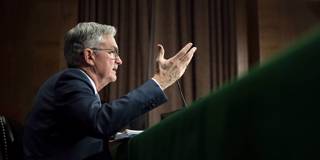By announcing its largest rate hike in two decades, the US Federal Reserve has sent precisely the signal that inflation hawks and moneylenders wanted to hear. Even better, the Fed no longer has to worry about the "transitory vs. persistent" debate, because it will get credit for a decline in inflation either way.
AUSTIN – According to economist Kenneth Rogoff of Harvard University, “a growing crescendo of commentary places the blame for the current surge in US inflation squarely on the Federal Reserve.” His reference is to a leader in The Economist, which blames America’s central bank not for the inflation itself, but for failing to raise interest rates sooner and more harshly than it finally did, on May 4.

AUSTIN – According to economist Kenneth Rogoff of Harvard University, “a growing crescendo of commentary places the blame for the current surge in US inflation squarely on the Federal Reserve.” His reference is to a leader in The Economist, which blames America’s central bank not for the inflation itself, but for failing to raise interest rates sooner and more harshly than it finally did, on May 4.